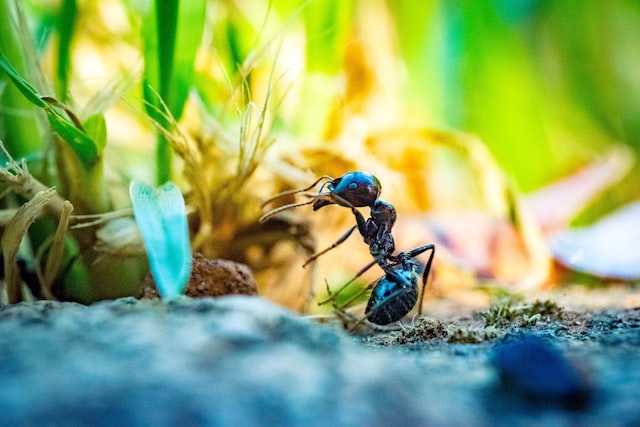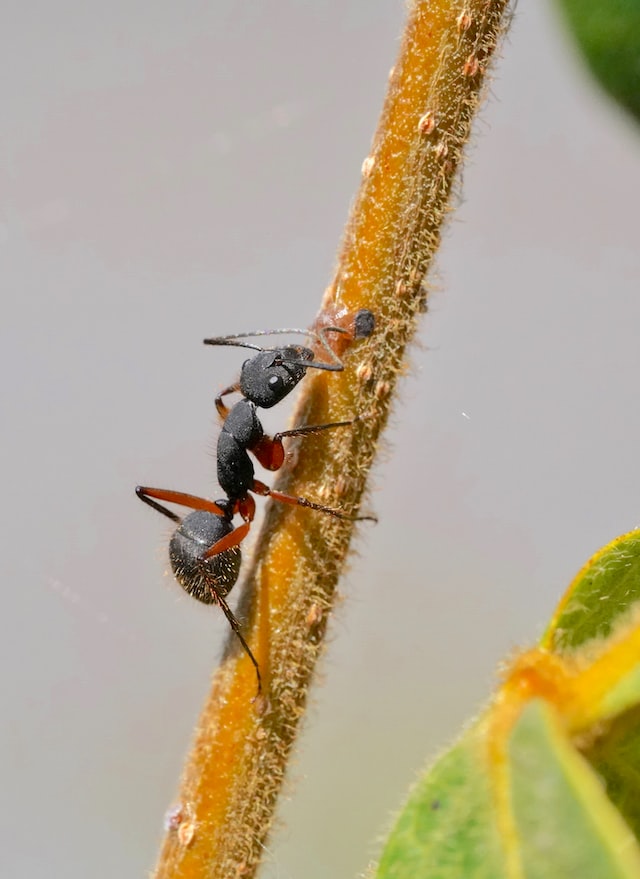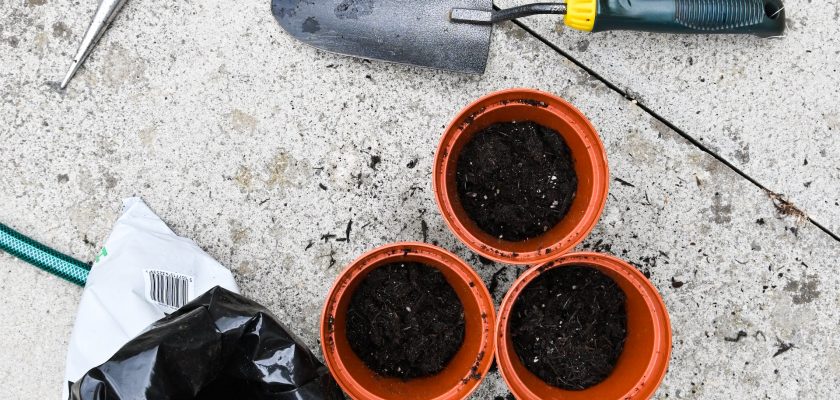If you’re wondering how to get rid of ants in potted plants, then you’ve come to the right place. Here you’ll find information on the different methods for removing ants from your home and garden. You’ll also find out more about the types of ant traps that are available, as well as the type of Diatomaceous earth that you can buy to use as a preventative measure against ants in potted plants.
Diatomaceous earth
If you have ants in potted plants, you can use diatomaceous earth to get rid of them. It is easy to use and safe. You can sprinkle it on your plants to kill them or spray it around the area.
Ants can be a real nuisance. They can get into your home easily and bring pests with them. So, if you have ants in potted plants, make sure that you treat the area properly.
Diatomaceous earth is a dry powder that contains fossilized unicellular algae. It is a natural insecticide that can destroy ants and other insects.
When applied to the soil, diatomaceous earth helps the plants to absorb more nutrients. The insecticide is also safe for humans, animals, and the environment. But before you start, be sure to read the label of the product you buy and follow the instructions.
When you apply the diatomaceous earth, you need to spread it in a narrow trail. For best results, the trail should start 16 inches to 24 inches away from the foundation.

Photo by Guillaume de Germain on Unsplash
Baited ant traps
Baited ant traps are a great way to kill off ants that have infested your potted plants. However, it can take some time to see results. There are a few tips to follow to help you get the most out of your ant baits.
First, you want to make sure that you’re using the right kind of bait. You don’t want to waste your time and money on the wrong bait.
The best baits will contain a natural ingredient such as boric acid. This substance is a chalk-like compound that can kill ants. It is also one of the most effective pesticides available.
Another ant bait to try is neem oil. This plant-specific poison will kill ants within thirty minutes of contact. Other ant repellents include cinnamon and cayenne pepper.
Before placing a bait, you should survey your area for foraging trails. This will allow you to know where to place the bait and where not to.
Dry potting mix
Ants are not only a pest to humans but also to your potted plants. Fortunately, you can easily get rid of ants using common household items.
You can use a spray of soapy water to kill soil pests. Or you can sprinkle a little bit of ant bait around the area. The ants will then be driven off by the smell. However, you may need to repeat this process several times in order to fully destroy the ant colony.
Another effective technique to rid your garden of ants is to replace the old potting soil with fresh and moist potting soil. This will prevent the ants from spreading to other parts of the garden. It will also help discourage other ants from establishing colonies in your potted plants.
If you do not want to replace the entire potted plant, you can place the pot in a large plastic bag. Ensure that the bag is sealed to keep the ants from getting out.

Photo by Cherre Bezerra Da Silva on Unsplash
Optiguard ant gel
If you’re looking to get rid of ants in potted plants, you may want to consider using Optiguard ant gel. It’s a non-toxic ant killer that works well against common household ants.
While ants are typically finicky about what they eat, they are also known to be attracted to sweet baits. Optigard is a sugar-free formula that will not attract ants or odorous ant workers.
Optigard is designed to work in both indoor and outdoor spaces. The bait is formulated with thiamethoxam, which is a broad-spectrum insecticide. Thiamethoxam is absorbed by insects through direct contact.
Using a syringe applicator, you can apply Optigard to cracks and crevices. Ants will be attracted to the bait and bring it back to the nest. Once the colony is infested, the active ingredient will be absorbed by the worker ants and they will pass the poison to the other ants.
Optigard is also approved for use in food-handling establishments. When used on a regular basis, the bait can provide you with unparalleled control over a wide range of ants.
